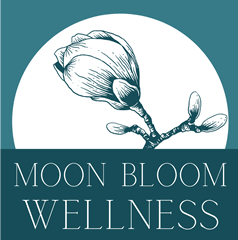Anxiety and fear are a normal part of human experience.
We all face feelings of fear and anxiety in situations like starting a new job or public speaking, or we may experience fear if we are in a dangerous situation. Anxiety can motivate us to make sure we are prepared for challenges, and fear can be protective by letting us know when to avoid certain situations – like walking down a dark alley at night. But what if your feelings of anxiety extend beyond what’s considered normal?
When feelings of fear and anxiety are excessive and significantly impact your life, it may qualify as an anxiety disorder. A 2017 poll by the APA found that approximately two thirds of Americans report feeling either somewhat or extremely anxious regarding the safety and health of their families and themselves.¹ This poll found that the most anxious generation is millennials. Reporting feelings of anxiety doesn’t necessarily mean you have an anxiety disorder, but you may benefit from talking to a therapist if you feel like your symptoms are interfering with your day to day life.
Anxiety, your health, and how online counseling in New Jersey can help.
Anxiety disorders can impact our quality of life when we feel unable to manage anxious and fearful thoughts and behaviors. For instance, you may find yourself being hyper-vigilant or avoiding situations. The thoughts and feelings that come with an anxiety disorder can be overwhelming and consuming. Online counseling in New Jersey can help you to determine if you have an anxiety disorder, and to understand and overcome your symptoms.
Anxiety isn’t just in your head – in the moment you are experiencing it, anxiety can cause various physical symptoms like increased heart rate, dizziness, sweating, shaking, rapid breathing, feelings of panic, and so on. One study² found a strong association between anxiety and depression and occurrences of the following health issues:
1. heart disease
2. back problems
3. asthma
4. ulcers
5. eyesight difficulties
6. migraines
Addressing your symptoms is not only important for improving your daily life but can potentially help you decrease your chances of experiencing other serious health conditions associated with anxiety. Anxiety can also make you more prone to getting sick in general, as stress from anxiety releases cortisol which can weaken the immune system over time.
What’s happening in your brain when you experience anxiety?
When faced with a dangerous situation, two parts of your brain receive information about the danger – your cerebral cortex, responsible for making decisions and thinking, and your amygdala, a key player in emotional processing. The amygdala sends a message to the hypothalamus, located at the base of your brain, which triggers the rapid release of hormones – all before your cerebral cortex has processed what’s happening. These hormones are responsible for many of the physical symptoms associated with anxiety, like increased blood pressure, heart rate, tension, and your fight or flight response. The fact that all of this occurs before you are aware of what’s happening is important for survival, as it allows you to react quickly in the moment.
In someone with an anxiety disorder, the amygdala may be more sensitive, causing your brain to react to non-threatening situations in the same way that it responds to a true emergency. If this happens often enough, your brain can begin to create associations between situations and the fear response. Someone’s personal history can also make them more vulnerable to anxiety if they have experienced significant or prolonged stress in their life.³
Sarah Tronco, LCSW, provides Online Counseling in New Jersey and works to develop a strong therapeutic relationship with her clients, which helps to create a secure place where individuals can achieve meaningful change.
References:
1. https://www.psychiatry.org/newsroom/news-releases/majority-of-americans-say-they-are-anxious-about-health-millennials-are-more-anxious-than-baby-boomers
2. https://www.ncbi.nlm.nih.gov/pubmed/25510186
3. https://www.health.harvard.edu/mind-and-mood/generalized-anxiety-disorder
Photo by Naomi August on Unsplash

